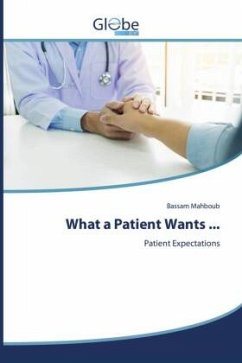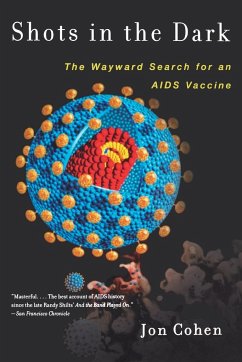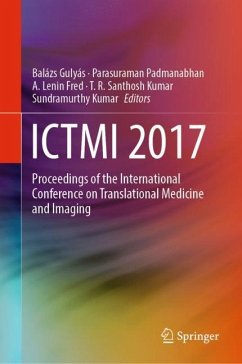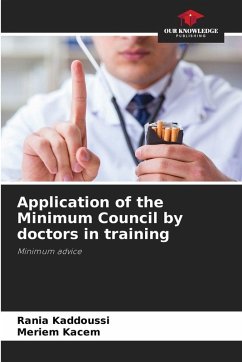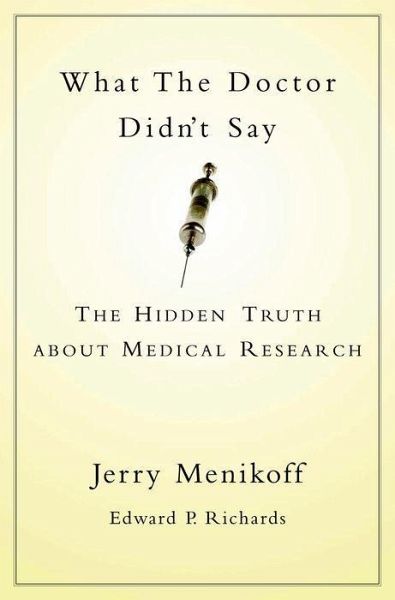
What the Doctors Didn't Say
The Hidden Truth about Medical Research

PAYBACK Punkte
27 °P sammeln!
Millions of people each year decide to participate in clinical trials--medical research studies involving an innovative treatment for a medical problem. For the patient, such participation can sometimes be a life-saving choice. But it can also be just the opposite. Our country years ago adopted rules designed to make assure that people are making informed choices about participation. This book explains the reality behind those rules: that our current system of clinical trials hides much of the information patients need to make the right choices. Witness the following scenarios: -Hundreds of pa...
Millions of people each year decide to participate in clinical trials--medical research studies involving an innovative treatment for a medical problem. For the patient, such participation can sometimes be a life-saving choice. But it can also be just the opposite. Our country years ago adopted rules designed to make assure that people are making informed choices about participation. This book explains the reality behind those rules: that our current system of clinical trials hides much of the information patients need to make the right choices. Witness the following scenarios: -Hundreds of patients with colon cancer undergo a new form of keyhole surgery at leading cancer centers--never being told that 85% of colorectal surgeons, worried that it increases the risk of the cancer returning, would not themselves undergo that procedure. -Tens of thousands of women at high risk of developing breast cancer are asked to participate in a major research study. They are told about the option of having both breasts surgically removed--but not told about the option of taking a standard osteoporosis pill that might cut the risk of getting breast cancer by one-half or more. What The Doctor Didn't Say, principally written by a nationally prominent expert, is the first book to reveal many heretofore hidden aspects about the true nature of participation in clinical trials. It shows why options not commonly known--including getting a new treatment outside of a research study--can often be the best choice. It explains how patients can make good decisions even if there is only limited information about a treatment's effect. And it does this through the eye-opening stories of whatis happening daily to thousands of people. This book ends up confronting the fundamental dilemma of medical research: Participation in clinical trials plays a vital role in advancing knowledge, and many experts fear that if the information provided herein became widely k





